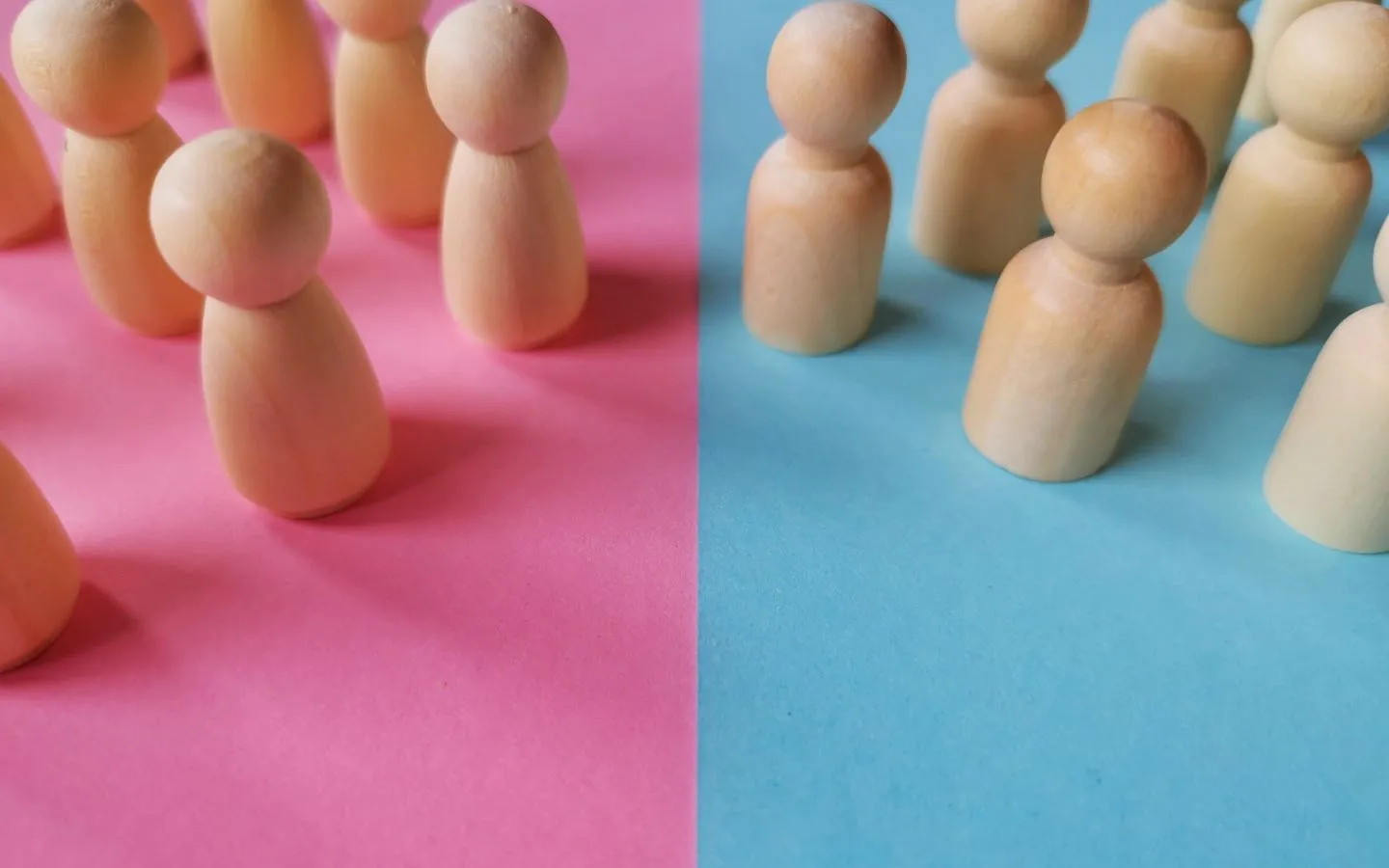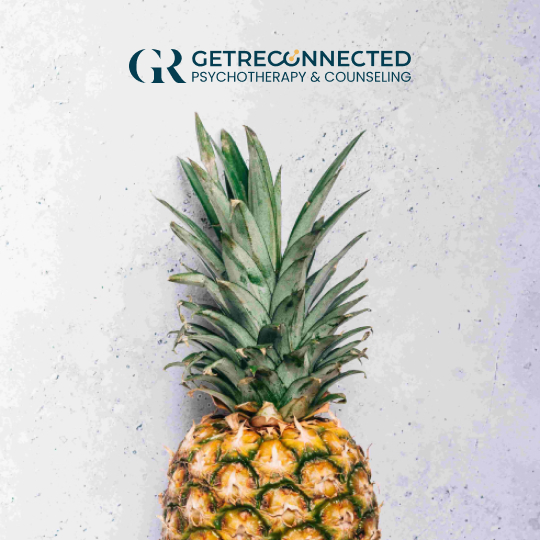Have you ever felt so tired, with a sense of not caring about anything, not enjoying the things you used to and everyday tasks feeling like a burden?
It could be burnout, depression, or even a combination of both. These two conditions often get confused due to sharing similar symptoms. This confusion can make it hard to understand the root of emotional distress.
This blog aims to shed light on the signs and symptoms, similarities and differences between burnout and depression.
We’ll explore the main symptoms of each, helping you gain a clearer understanding of what you might be experiencing.
Most importantly, we’ll make sure you learn more about both so you can navigate the path toward feeling better.
Table of Contents
ToggleBurnout is typically defined as:
· A reduced sense of personal accomplishment
· Feeling really tired and out of energy
· Feeling grumpy or negative about the job
· Feeling mentally distanced from one’s job
The effects of burnout develop gradually, resulting from an imbalance where demands outstrip personal resources and coping strategies.

Symptoms of Burnout
Burnout can look like reduced performance, feeling numb about work, and experiencing difficulty concentrating, among others.
Here are some common signs of burnout:
- Emotional Exhaustion: Feeling constantly drained and emotionally depleted, lacking the energy for even basic tasks.
- Negativity and Detachment: Developing a cynical and negative attitude toward your work, colleagues, or even accomplishments.
- Reduced Effectiveness: Working with burnout often leads to feeling a sense of decreased effectiveness and accomplishment at work while doubting your skills and abilities.
- Changes in Work Performance: Difficulty concentrating, increased procrastination, and a decline in overall work quality.
- Physical Symptoms: Burnout can affect your physical state. Experiencing headaches, fatigue, muscle tension, or changes in sleep or appetite due to stress.
Causes and Risk Factors
While anyone can experience burnout, some professions are at higher risk. Jobs with high demands, low control, and a lack of social support are more likely to lead to burnout.
Here are some common factors that cause burnout:
- Chronic Work Stress: Feeling overwhelmed by workload, unrealistic deadlines, or a lack of control over your work environment.
- Lack of Work-Life Balance: Inability to disconnect from work, leading to constant stress which can make it hard to relax.
- Dysfunctional Work Environment: Poor communication, lack of recognition, or toxic workplace dynamics can contribute significantly to burnout.
- Personality Traits: People with high expectations for themselves or difficulty setting boundaries might be more prone to burnout.

Depression, often referred to as major depressive disorder, is a mental health condition. It significantly impacts how you feel, think, and function in daily life, affecting everything from sleep and appetite to work and relationships.
The definition of depression covers a variety of symptoms. But for a diagnosis, you need to have symptoms for at least 2 weeks, that persist most of the day, nearly every day.
Depressive symptoms can give you a sense of persistent sadness, anxiety, or “empty” mood.
Symptoms must be severe enough to cause noticeable problems in your day-to-day activities.
It can be debilitating, affecting not just feelings but also physical health, making it harder to do things at work and home.
Depression symptoms include:
- Persistent sadness or feelings of emptiness
- Significant fatigue or loss of energy
- Feelings of worthlessness or excessive guilt
- Difficulty in concentrating and making decisions
- Changes in sleep patterns, such as insomnia or excessive sleeping
- Appetite changes, which may lead to weight fluctuations
- Physical symptoms without clear physical causes, like headaches or muscle pain
- Recurrent thoughts of death or suicide
Risk factors include:
- A family history of depression
- Major life changes
- Certain medications
- Other mental health disorders such as bipolar disorder or chronic anxiety
Depression doesn’t come from just one thing but from a mix of social, psychological, and biological factors.
While events like losing a job, grief, or trauma can increase the risk, depression can also strike out of the blue.

Understanding the differences between burnout and depression is important so you can address these conditions effectively.
While they share certain traits, there are key differences in the causes, impacts, and treatment approaches.
You’re probably still wondering what’s the difference?
Burnout vs. Depression: Key Differences
- Focus
Burnout is primarily work-related, originating from chronic stress and dissatisfaction in your job.
Depression, on the other hand, affects all aspects of life and can arise from various trigger.
- Emotions
Burnout is often characterized by cynicism, detachment, and feelings of decreased effectiveness.
Depression, however, involves a deeper sense of sadness, hopelessness, and worthlessness.
- Pleasure
Burnout might decrease your ability to experience pleasure, specifically in job-related activities.
Depression can lead to a general loss of interest and enjoyment in most aspects of life. - Duration
Burnout symptoms may develop rapidly in response to a stressful work situation.
Depression typically develops gradually and persists for longer periods.
Burnout vs. Depression: Similar Symptoms
Despite these differences, burnout and depression can share similar symptoms. Here are a few:
- Fatigue and Exhaustion: Both burnout and depression can cause feelings of tiredness and a lack of energy.
- Changes in Sleep: Difficulty sleeping or sleeping too much can occur in both.
- Difficulty Concentrating: Problems focusing and making decisions are common symptoms of both conditions.
- Irritability: Increased feelings of irritability and frustration can be present in both.
In a nutshell, depression and burnout share many similarities, both causing physical and mental exhaustion that can significantly impact your daily life.
A systematic review of recent studies shows a strong link between chronic stress and the development of physical and mental health issues.
- Consider the cause: If your symptoms are primarily work-related, burnout might be more likely. However, depression can also manifest in job-related ways.
- Evaluate your emotions: Are you mainly feeling negative and disconnected from your job, or is there a deeper sadness and hopelessness?
- Assess your overall well-being: Does the lack of enjoyment extend beyond work into other areas of your life?
- Look at the duration: Did your symptoms develop rapidly due to work stress, or have they been present for a longer period?

The relationship between the two is complex and they can affect each other.
While we’ve explored the main differences between depression and burnout, it’s important to understand how they can influence each other.
Chronic stress and exhaustion associated with burnout may lead to depression. Studies suggest that untreated burnout can significantly increase the risk of developing depression.
Imagine burnout as a state of emotional depletion. When this depletion persists, it can chip away at your overall sense of well-being and the way you cope, making you more vulnerable to the deeper sadness and hopelessness characteristic of depression.
Depression, with its symptoms of fatigue, negativity, and difficulty concentrating, can significantly impact your work performance. This can create a vicious cycle, where work becomes more and more stressful, making you feel inadequate, and eventually leading to burnout.
Overall, burnout can lead to depression and vice versa.
Effectively managing both conditions involves a combination of therapeutic strategies, lifestyle changes, and, sometimes getting help from a mental health professional.
For depression, therapies like Cognitive Behavioural Therapy (CBT), Dialectical Behaviour Therapy (DBT), Interpersonal Therapy (IPT), and Internal Family Systems (IFS) are effective.
· Cognitive Behavioural Therapy (CBT): CBT is an evidence-based form of psychotherapy that focuses on identifying and changing negative thought patterns and behaviours. It helps individuals develop coping skills that target solving current problems. CBT is highly effective for depression, reducing symptoms by changing unhelpful cognitive distortions and behaviors.
· Dialectical Behavior Therapy (DBT): DBT combines cognitive-behavioural techniques with mindfulness practices. It is particularly effective for those who experience intense emotions. DBT helps enhance emotional regulation and teaches skills to manage stress, control emotions, and improve relationships with others. This therapy is beneficial for individuals facing chronic suicidal ideation as part of their depressive symptoms.
· Interpersonal Therapy (IPT): IPT is a structured psychotherapy that focuses on interpersonal issues, which are often at the heart of depressive disorders. It helps individuals identify and address problematic personal relationships that may contribute to or exacerbate their depression. IPT aims to improve communication patterns, increase emotional expression, and help develop more effective social skills
. Internal Family Systems (IFS): IFS is a type of therapy that sees your mind as having different parts, each with its own thoughts and feelings. This therapy helps you understand and work with these parts, especially the ones causing stress and burnout. By doing this, IFS helps you be kinder to yourself, manage your emotions better, and feel more balanced inside.
Therapy for burnout often focuses more on stress management techniques and lifestyle changes to reduce work and personal stress.
It also addresses personality traits or childhood experiences, such as perfectionism and people-pleasing tendencies, that can sometimes lead to burnout.
Think of your life like a game of Jenga. Each block in the tower is something that stresses you out or takes your energy. If you keep taking out too many blocks without putting any back, the tower (which represents your ability to handle stress) can fall.
Practicing mindfulness and self-care is like putting blocks back in the tower. It helps keep your tower stable and stops it from falling. Doing this regularly can help you feel less burned out and depressed, making it easier to handle stress and stay strong emotionally and mentally.
Understanding and dealing with both conditions is important for staying mentally healthy. Even though they can seem similar, they need different ways to be managed.
For depression, specific therapies can help, while for burnout, different strategies are needed. Using the right methods for each can help you feel balanced and improve your life.
At Get Reconnected, we specialize in helping individuals manage burnout and depression. We believe burnout is a message, and our therapists will work with you to uncover its meaning and develop personalized strategies. Don’t hesitate to reach out for a free consultation and we can discuss the next steps.

Delia Petrescu
Founder & Director
BA, MA, Registered Psychotherapist (RP)
Delia Petrescu, MA, RP is a Toronto-based psychotherapist, psychometrist, and the founder of Get Reconnected Psychotherapy and Counselling Services. She provides virtual therapy sessions Ontario-wide. Delia has experience working with adults struggling with adjustment difficulties, depression, anxiety, and trauma. She specializes in integrative and holistic care for those coping with life crises such as fertility concerns. Read more about Delia

Two-Week Wait After IVF: 13 Tips To Survive the Toughest Part of Fertility Treatments
If you’ve been trying to get pregnant for a while and recently went through IVF, you know that waiting to find out if it worked

Finding Hope Through The Infertility Journey
Explore the emotional landscape of infertility at Get Reconnected. Learn how to cultivate hope and resilience during your fertility journey.

Surviving Infertility: Coping with the Ups and Downs
Learn effective coping strategies for the emotional challenges of infertility. Discover support and guidance for your journey at Get Reconnected.





